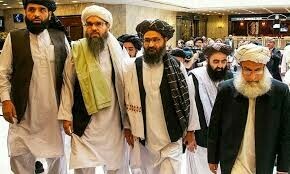They were assigned important posts and became very influential and powerful as time passed. During Iltutmish's rule, they served him quite faithfully but, after his death, they became notorious and intrigued against nearly all his successors. They wanted to keep every new ruler under their thumb in order to keep on enjoying the full taste of power.
Their intrigues, lust for power and greed for wealth led to disorder and complete chaos in the country. The forty had become so powerful that no ruler could defy them; and if any ruler failed to fulfil their demands, they overthrew his rule and placed their own candidate on the throne.
Historian Ziauddin Barani writes that since the forty were slaves of Iltutmish and were posted on high ranks at the same time, they considered themselves important and were not ready to recognise any of their colleagues as superior. The members also competed with other members of the group in control of the army, possessing property and wealth. As a result, there was strong rivalry and conflict among them too.
When Balban, one of the forty, assumed power, he fully realised that he could not become the real ruler in presence of other members of the group. Himself being one of them, he was fully mindful of their strengths as well as weaknesses, besides being aware of their intrigues which he understood how to encounter. He carefully made a plan and started to eliminate them one by one, not sparing even his cousin.
With the elimination of the forty, the role of the Turkish slaves in the Indian politics came to an end. Though the institution of slavery continued; a majority of slaves were non-Turks, and, since the rulers relied heavily on the support of slaves, these non-Turks also played an active role in history.
During the Khilji period, Malik Kafur gained the confidence of Aluddin Khilji and conquered some parts of South India. Khusrau Malik was the slave of Qutb-ud-din Mubarak Khilji, who became his favourite and, subsequently, assassinated him and occupied the throne for a brief period.
Later on, Firuz Shah Tughlaq renewed the institution of slavery which was under the department of Diwan-i-Bandagi. It was headed by a high-ranking officer. Though they were the favourites of the Sultan, they did not play any role in politics of the time.












































Dear visitor, the comments section is undergoing an overhaul and will return soon.